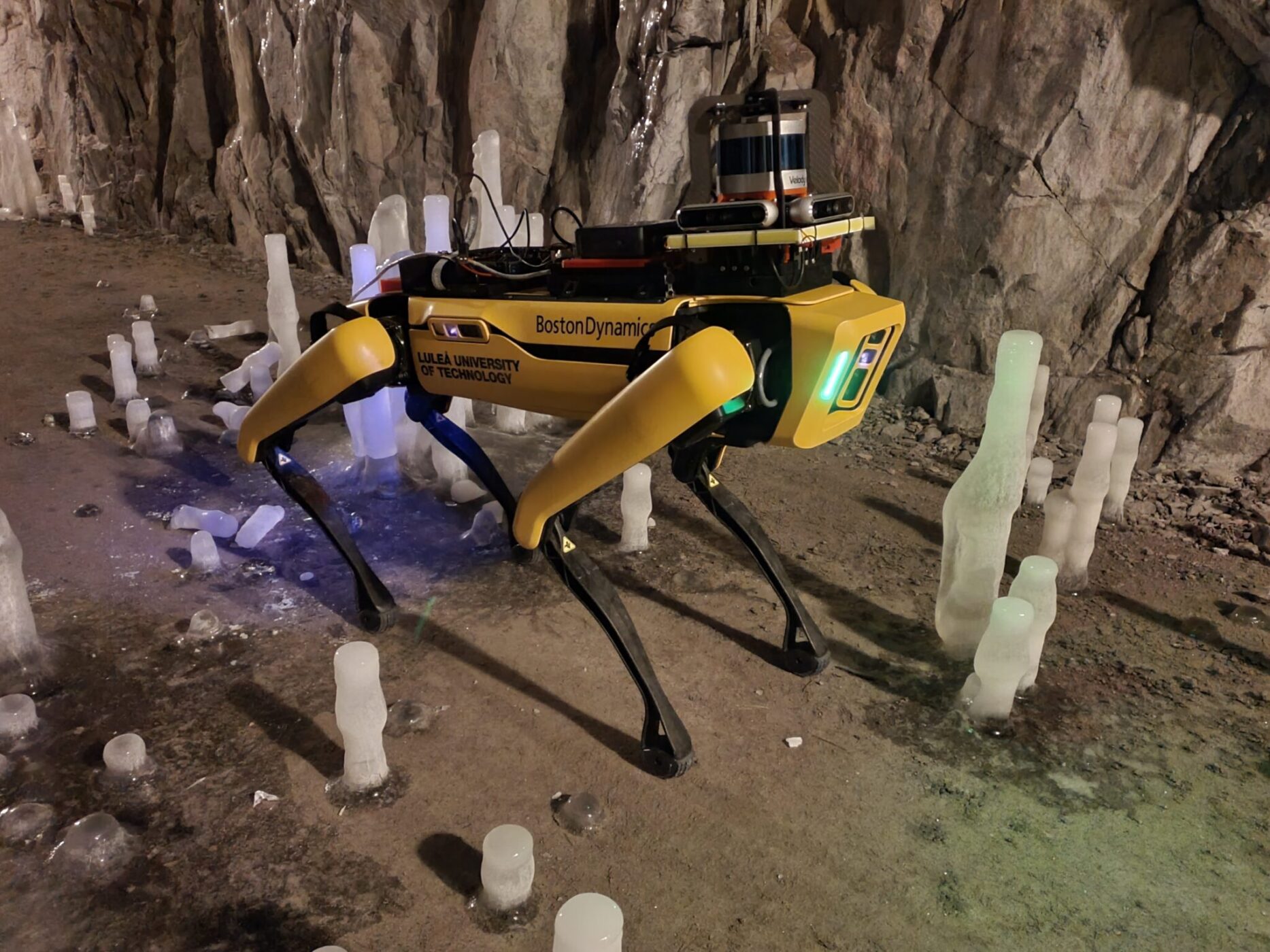Robotics in everyday life, and Machine learning for the welfare of the Society: these are the research areas of the two groups at Luleå University of Technology that have been affiliated within WASP during 2022.
WASP is continuing to expand. During 2022 Luleå University of Technology became represented within the program, through two affiliated researchers: George Nikolakopoulous, professor in Robotics and Artificial Intelligence, and Marcus Liwicki, professor in Machine Learning.
“For WASP research excellence is a guiding principle. When we identify emerging groups of excellence in our domain WASP has the possibility to affiliate them with the program. We are very pleased to announce that the groups around George Nikolakopoulos and Marcus Liwicki at Luleå University are such cases and we welcome them to the WASP program”, says Anders Ynnerman, WASP Program Director.
Robotics in everyday life
George Nikolakopoulos is Professor and Head of Subject for Robotics and Automation at the Department of Computer Science, Electrical and Space Engineering, LTU. For his research group, the driving force behind all activities is the vision in bringing robotics into people’s everyday life, creating a continuous impact in humans’ well-being:
“We aim to significantly close the gap between advanced theory and real world applications”, says George Nikolakopoulos.
Example of applications can be directly found at the mining industries, at the inspection of the aging infrastructure, at the inspection of airplanes and wind turbines, in autonomous aerial and ground vehicles, on biomimetic robots for security and surveillance, and on space robotics.
“We are trying to demonstrate the utilization of robots in real life conditions and fully connected with real needs”, says George Nikolakopoulos.
The WASP research network will add new perspectives and possibilities to the research group in Robotics and AI, according to George Nikolakopoulos:
“Except from a huge honor to be among the best researchers in Sweden in the field of Autonomous Systems and AI, WASP is a place where new ground breaking ideas can be cultivated through intense interaction and intense collaboration with the participating industries”.
He sees the cooperation within the WARAs and the NESTs as unique opportunities:
“The cooperation within the WARAs and the NESTs will give us the opportunity to deploy our research in real life problems and as such create a strong societal impact in the near future”.
Machine Learning for the welfare of the society
Marcus Liwicki is professor and Head of Subject for Machine Learning at the Department of Computer Science, Electrical and Space Engineering, and also Deputy Vice Chancellor in Applied AI, at LTU. He made his PhD on pattern recognition and is a specialist in artificial intelligence with focus on machine learning, pattern recognition, and knowledge management.
“The research of our group has the general aim of Machine Learning (ML) for the welfare of the society. We focus on three major sustainability goals: ML for sustainable industry innovation and infrastructure, ML for good health and well-being, and ML for quality education and infrastructure”, Marcus Liwicki says.
“We are contributing to these goals with fundamental and application-oriented research in Machine Learning and Artificial Intelligence, including deep learning, pattern recognition, and human computer interaction; with applications in digital humanities, education, document analysis, and Industry 4.0”.
Marcus Liwicki believes that the WASP research network will open new possibilities:
“Being part of the WASP research network increases our visibility and contact network to recruit even stronger PhD and senior members. Furthermore, we have the chance to participate in joint research projects contributing to achieving milestones in areas which have been identified to be especially important for Sweden. As such, we can combine our world leading expertise in several ML research areas with the unique expertise of other WASP and KAW-funded research groups”.
Marcus Liwicki will represent LTU in WASP, thereby being a part of the University Representative Group (URG).
Read more
Published: November 22nd, 2022
[addtoany]


